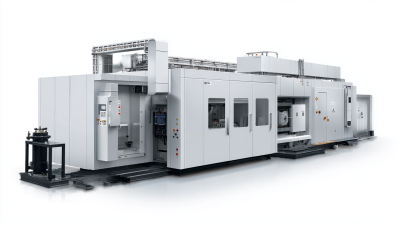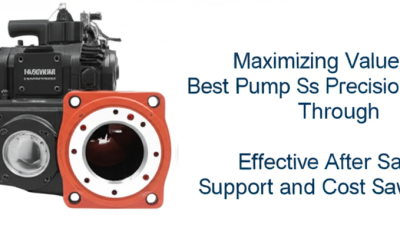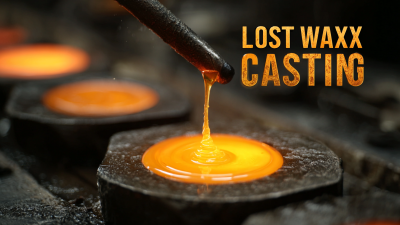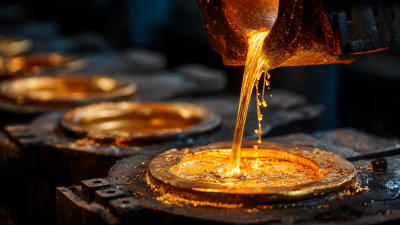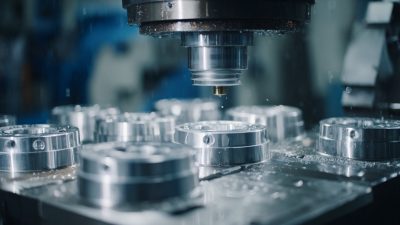In the fast-evolving landscape of industrial applications, the selection of the right pump is critical for optimizing performance and ensuring regulatory compliance. According to a recent report by the Global Pump Market Research, the global pump market is projected to reach over $100 billion by 2025, with precision casting techniques playing an increasingly vital role in enhancing the efficiency and reliability of pumping systems. Specifically, Pump SS Precision Casting has emerged as a preferred method for producing high-quality components that endure corrosive environments and high-pressure conditions. With the right choice of pumps, industries can achieve not only operational excellence but also significant cost savings through reduced maintenance and enhanced durability. This blog will outline seven essential tips to guide you in selecting the optimal pump solutions tailored to your specific needs, ensuring that performance and longevity are at the forefront of your operational strategy.

When selecting precision casting solutions for pumps, several key factors must be considered to ensure optimal performance and longevity. A recent industry report from the American Foundry Society indicates that the right material selection can improve pump life by up to 20%. This is crucial, especially in applications involving corrosive or harsh environments. Understanding the specific requirements of your application, such as pressure, temperature, and medium, will guide you in choosing the most suitable casting material.
One essential tip is to assess the casting process used to create pump components. Different methods, such as sand casting or investment casting, each have their advantages. For instance, investment casting provides superior surface finish and dimensional accuracy, making it ideal for intricate designs. Additionally, consider the foundry’s experience and reputation; a study from the Casting Industry Research Association shows that companies with over 20 years of experience achieve a 30% higher reliability in their casting outcomes.
Finally, ensure that you evaluate the foundry's quality control processes. It’s essential to verify that they adhere to industry standards such as ISO 9001. Manufacturers that implement rigorous testing protocols can significantly reduce failure rates in pump applications, leading to more efficient operations and reduced downtime. By focusing on these critical factors, you can make informed decisions that enhance your pump's performance and reliability.
When it comes to selecting the right pump for your needs, understanding the different types of pump designs and their applications is crucial. Centrifugal pumps, for instance, are commonly used in water transfer and chemical processing due to their efficiency in moving liquids at high flow rates. On the other hand, positive displacement pumps excel in applications requiring precise flow control, making them ideal for dosing and metering tasks in the pharmaceutical industry. Knowing these distinctions can guide you to the best choice for your specific requirements.

Consider capacity and head requirements when selecting a pump. Ensure that the chosen pump can handle the desired flow rate over the necessary distance to avoid performance issues. Another essential tip is to examine the fluid characteristics, such as viscosity and temperature, as these factors significantly affect pump performance. Ultimately, a thorough understanding of your application and the pump types available will help you make an informed decision that enhances your system's efficiency and reliability.
When selecting a pump for your industrial applications, the choice of material plays a critical role in ensuring durability and efficiency. The right alloy can significantly impact the pump's performance, resistance to corrosion, and overall longevity. Stainless steel, for instance, is a popular choice for its excellent resistance to rust and the ability to withstand harsh environments. However, not all stainless steels are created equal; factors such as temperature, pressure, and the nature of the fluids being pumped must be considered when determining the ideal alloy grade.
In addition to stainless steel, other alloys may also provide specific advantages depending on the application. For instance, duplex stainless steels offer higher strength and improved resistance to stress corrosion cracking, making them suitable for demanding applications in the oil and gas industry. Similarly, bronze alloys can be an excellent choice for pumps handling seawater or other aggressive fluids due to their corrosion-resistant properties. By carefully evaluating the conditions under which the pump will operate and selecting the appropriate material, users can enhance performance and extend the service life of their pumping systems.
| Tip No. | Tip Description | Material Considerations | Durability Factors |
|---|---|---|---|
| 1 | Understand the Application Requirements | Corrosion resistance | Operating environment |
| 2 | Select Appropriate Pump Type | Material compatibility | Pertinent stress levels |
| 3 | Consider Flow Rate Requirements | Density of the fluid | Wear rate |
| 4 | Evaluate Impeller Design | Alloy selection | Impact resistance |
| 5 | Assess Energy Efficiency | Thermal conductivity | Fatigue life |
| 6 | Explore Maintenance Requirements | Ease of material access | Maintenance costs |
| 7 | Consult with Experts | Industry standards | Long-term performance |
When it comes to pump performance and longevity, the quality of the manufacturer plays a critical role. A recent industry report by the Hydraulic Institute indicates that up to 80% of pump failures can be attributed to poor manufacturing practices, which highlight the importance of selecting a company with a proven track record in precision casting. High-quality casting ensures that the pump components are durable and less prone to wear, effectively minimizing downtime and maintenance costs.

Further emphasizing the impact of manufacturer quality, a study conducted by the Pump Manufacturers Association found that pumps produced from superior materials can have a lifespan that is 25% longer compared to their lower-quality counterparts. This longevity not only translates to savings in replacement costs but also enhances overall operational efficiency. Choosing a manufacturer dedicated to rigorous quality control processes, such as those adhering to ISO 9001 standards, can significantly influence your pump's reliability and operational success, ultimately leading to improved performance in challenging environments.
Innovative technologies in precision casting have dramatically transformed the landscape of pump manufacturing, leading to enhanced pump efficiency and durability. Recent industry reports, such as those from MarketsandMarkets, indicate that advancements in casting techniques could potentially reduce weight by up to 30% while increasing tensile strength by as much as 20%. These improvements stem from the integration of advanced materials and high-performance alloy specifications, which allow for better performance metrics in demanding applications.
Moreover, precision casting technologies, such as lost-wax casting and investment casting, ensure tighter tolerances and improved surface finishes, leading to fewer failures and maintenance requirements. According to a study by Research and Markets, the global precision casting market is expected to reach USD 5 billion by 2026, reflecting a compound annual growth rate (CAGR) of 5.1%. This growth highlights the necessity for manufacturers to adopt new casting methods to stay competitive and deliver high-efficiency pumps that meet the increasing demands of various industries. Enhanced casting processes not only contribute to lower operational costs but also significantly reduce energy consumption, aligning with global sustainability goals.
